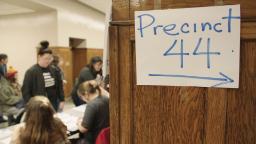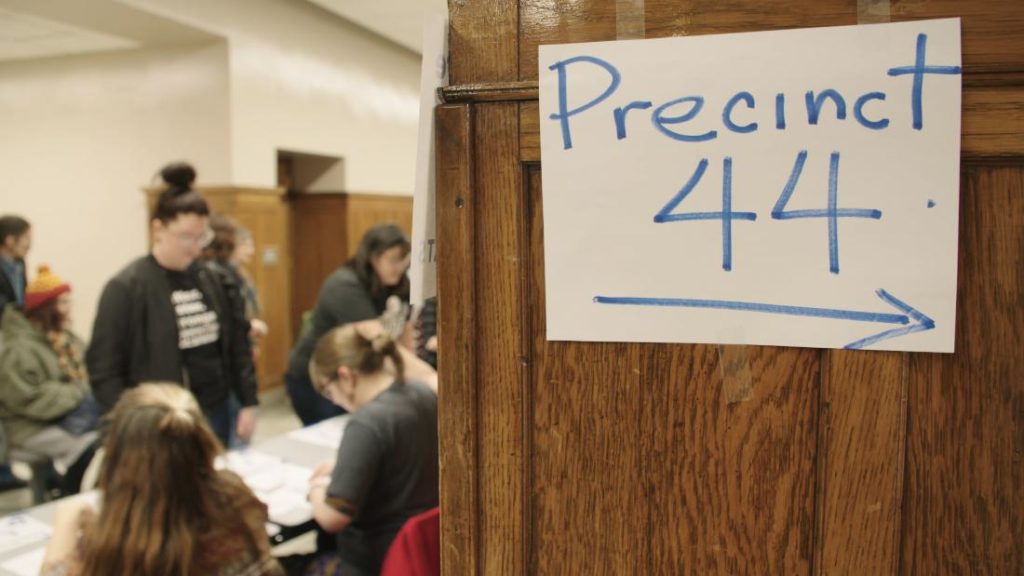
The review, which was commissioned and released by the Iowa Democratic Party and conducted by a group of independent lawyers, examined a collection of thousands of documents and dozens of interviews.
The DNC’s late request for a feature in the Shadow app, as well as delays in the development and approval of the app, and other issues were to blame for the multiple problems seen in the reporting process during the caucuses, the report says.
Among the reasons highlighted in the report as contributing to the then-new app’s software outage that didn’t allow precincts to report results the night of the caucus was a delay in the approval process by the DNC. Despite the problems before and during the caucuses, the report concluded that the app was not hacked or compromised.
“The findings of this independent, detailed review of what happened during the 2020 caucuses should speak for itself. In the interest of clarity and public reassurance, the IDP commissioned this self-critical report to help guide conversations as we move forward,” IDP Chair Mark Smith said in a news release.
The DNC did not allow auditors to speak with the committee’s staff, according to the report.
DNC spokesman David Bergstein said in a statement to CNN Sunday that “the need for the IDP to include a quality control check in their system was validated by numerous press reports which found ‘errors and inconsistencies’ in the initial caucus results. The underlying technical problems were caused by errors from the IDP’s vendor.”
Bergstein also said that “every four years, the DNC looks back at what worked and what didn’t work and the DNC’s Rules and Bylaws Committee will continue to evaluate all areas of our nominating process and make recommendations for any changes.”
According to the report, the DNC regularly interjected itself into Shadow’s development process and required Shadow to provide assurances as to certain security concerns or to perform additional security exercises.
“Shadow believed these interjections were unnecessary, unhelpful, time-consuming, and the cause of further development delays,” read the report, which noted the app ended up rolling out much later than expected.
“After these lengthy delays, the reporting app — both iOS and Android versions — was first launched and rolled out to end users on January 18, 2020, just two weeks before the 2020 caucuses,” the report continues. Due to the significant delay, users of the app weren’t trained properly and on the night of the voting, users either opted not to use the app or gave up partway through after encountering bugs.
“Users reported abandoning attempts to submit their results mid-process due to problems with the user interface,” the report says.
The report goes on to note that another major issue arose when the DNC requested Shadow build a conversion tool that would allow them to have real-time access to incoming reporting data on caucus night in order to perform its own caucus result calculations and confirm the party’s results before the IDP could report them to the public.
The request, though not unusual, came just weeks before the big event.
“When the DNC’s database conversion tool failed to work correctly, it caused the DNC to wrongly stop the IDP from reporting its results, and the IDP’s entire planned reporting process was thrown into disarray. The DNC’s interjection was the catalyst for the resulting chaos in the boiler room and in the IDP’s attempts to manually collect and confirm caucus results by hand,” the report says. “If the DNC had not interjected itself into the results reporting process based on its erroneous data conversion, caucus night could conceivably have proceeded according to the IDP’s initial plan.”
The conversion tool, according to the report, is said to be the source of the widely reported “irregularities” that caused Democrats to believe there was a discrepancy in the reporting app’s recorded data or its delegate calculations.
More importantly, the report emphasizes that the Shadow app didn’t have any issues that affected the reporting of results.
“Contrary to media and public speculation, the Shadow reporting app was not in any way hacked or compromised by outside actors on caucus night. To the contrary, apart from some individual users’ difficulties using the interface, the reporting app largely worked as intended,” according to the report.
This story has been updated with comments from DNC spokesman David Bergstein.
CNN’s Adam Levy, Kelly Mena and Chandelis Duster contributed to this report.
You may also like
-
UK coronavirus variant has been reported in 86 countries, WHO says
-
NASA technology can help save whale sharks says Australian marine biologist and ECOCEAN founder, Brad Norman
-
California Twentynine Palms: Explosives are missing from the nation’s largest Marine Corps base and an investigation is underway
-
Trump unhappy with his impeachment attorney’s performance, sources say
-
Lunar New Year 2021: Ushering in the Year of the Ox

